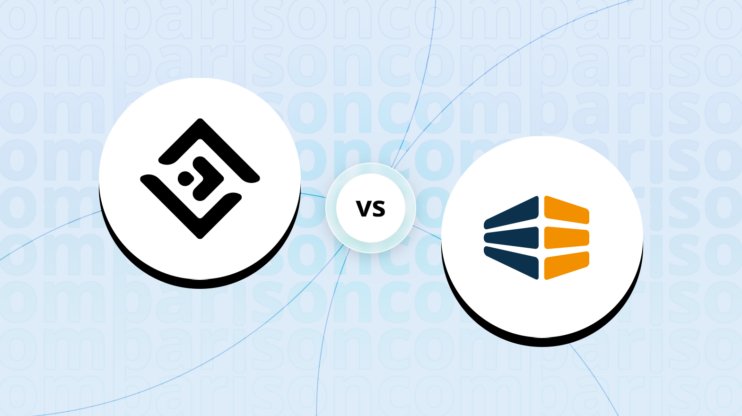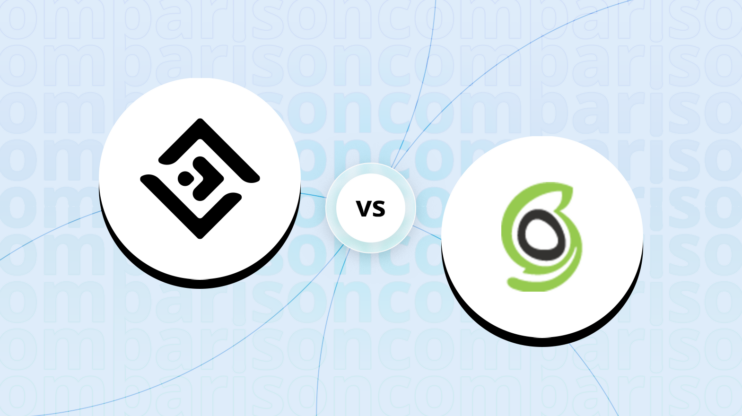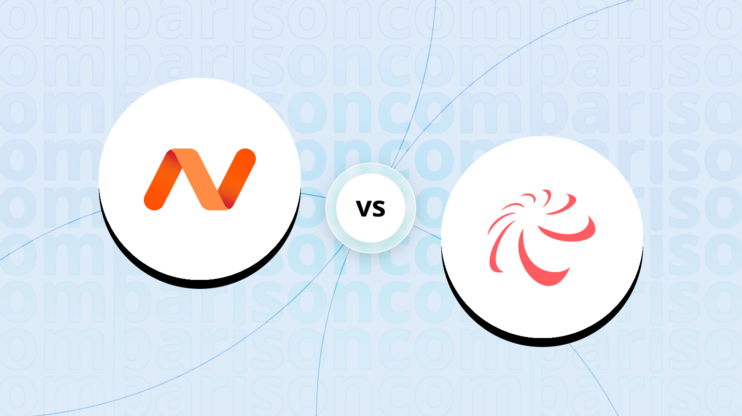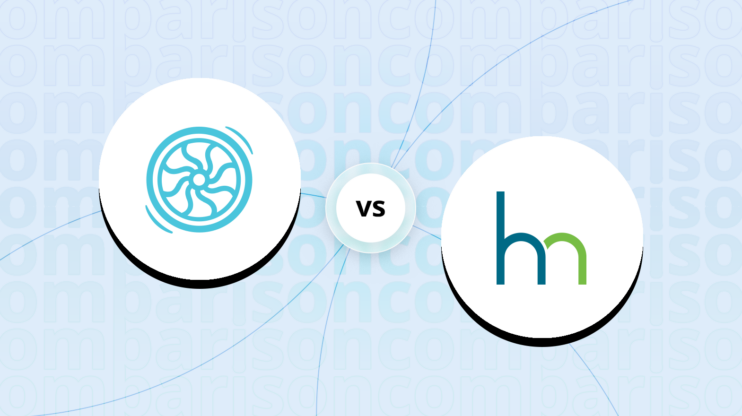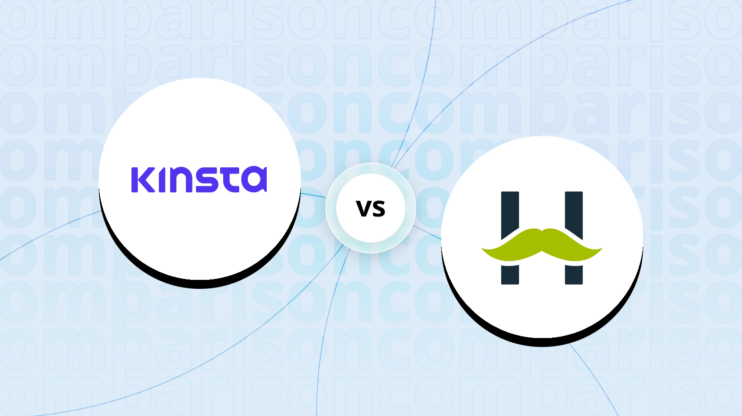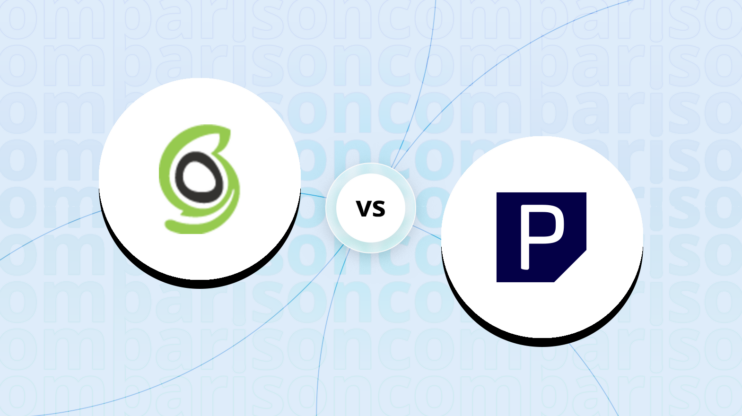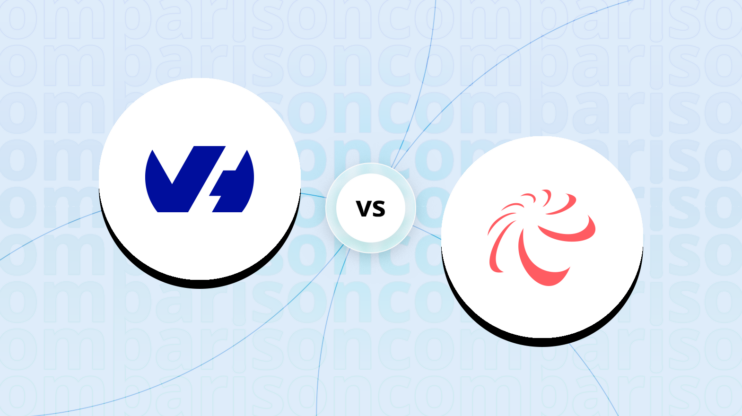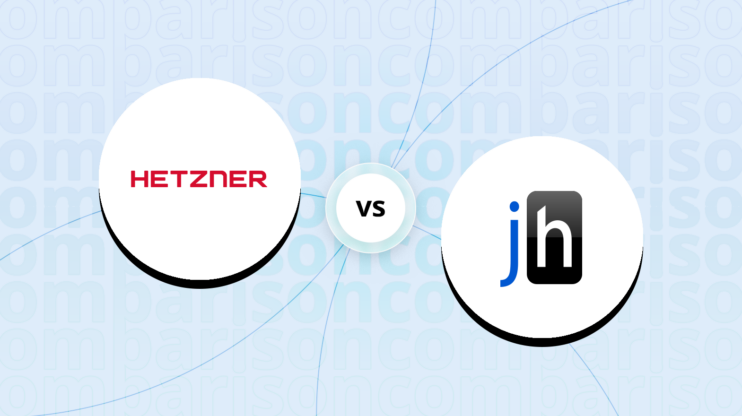Final verdict
Looking over SiteGround vs. Leaseweb, SiteGround stands out due to its superior performance, extensive features, and stronger support, making it a better all-around choice for most users.
-
SiteGround (Overall grade: 8.8)
SiteGround excels with its extensive hosting options, including shared and WordPress hosting, as well as its robust cloud hosting plans. Key strengths include superior uptime, faster response times, and advanced security measures supported by Google Cloud infrastructure. Users benefit from automated backup solutions, free SSL certificates, and AI-driven security protocols, which ensure the smooth and secure operation of websites. SiteGround’s user-friendly management tools, including an easy migration process and comprehensive customer support, make it a preferable option for both beginners and experienced users. However, some potential drawbacks are its higher renewal prices and the lack of VPS and dedicated hosting options.
Leaseweb (Overall grade: 8.0)
Leaseweb provides a broad spectrum of hosting services, prominently featuring VPS and dedicated servers, coupled with high customization and scalability options. Its high bandwidth capacity and server flexibility cater well to high-traffic and resource-intensive websites. Leaseweb’s strong compliance standards, including GDPR and PCI DSS, present added reassurance for businesses handling sensitive data. Nonetheless, Leaseweb’s slower response times and lack of certain integrated features such as automated WordPress migrations and extensive caching tools can be limitations. Additionally, the more traditional user interface and segmented customer support may not be as intuitive for beginners compared to SiteGround’s seamless experience.
 Overall grade:8.8 |
 Overall grade:8.0 |
|
|---|---|---|
| Uptime and Availability | 9.4 | 8.7 |
| Hosting Performance | 8.8 | 8.6 |
| Hosting Security | 8.6 | 8.3 |
| Price | 8.4 | 8.3 |
| Hosting Features | 8.5 | 6.8 |
| Ease Of Setup | 8.9 | 7.1 |
| User Management | 8.4 | 7.0 |
| Customer Support | 9.2 | 9.1 |
| User feedback | 4.3/5 | 2.8/5 |
Hosting types offered
Both platforms provide a variety of hosting types, each designed to meet the different needs of users.
 |
 |
|
|---|---|---|
| Shared hosting | ||
| Cloud hosting | ||
| WordPress hosting | ||
| Ecommerce hosting | ||
| VPS hosting | ||
| Dedicated hosting |
Although both offer a variety of hosting plans tailored to different needs, in
certain cases, one platform may prove to be more suitable.
Detailed comparison
Uptime and availability
Evaluates the average uptime statistics, uptime guarantee and overall availability of the hosting
provider
Score Components:
- Uptime percentage (30%): evaluates the uptime statistics in given period of time
- Uptime guarantee (20%): Assesses if the platform offers an uptime guarantee and
whether the actual uptime matches the promised guarantee. - General performance (25%): Evaluates how fast is the average response time and overall
it’s stability. - Responsiveness (10%): Adaptability to different devices and screen sizes.
- Availability (25%): Reflects the total downtime and number of outages.
 9.4
9.4
 8.7
8.7
🏆 Winner SiteGround: Superior uptime and faster response times make SiteGround stand out.
SECTION-1
🏆 Winner
SiteGround: Superior uptime and faster response times make SiteGround stand out.

SiteGround offers a solid network uptime guarantee of 99.9%, coupled with generous compensation if uptime falls below this level. Over a two-month period, SiteGround demonstrated impressive stability with an actual uptime of 99.99% and exceptionally fast response times at 0.207 seconds. Additionally, SiteGround accommodates a range of server locations globally, optimizing speed and load times for its users.

Leaseweb, with its top-tier uptime guarantee of 99.999% for core hosting, presents a strong case but falls short in shared hosting uptime. While Leaseweb’s network capacity and global data center locations are commendable, its performance reports show slower load times compared to SiteGround. Support options vary with hosting plans, giving SiteGround an edge with consistently quick customer service across all tiers.
Hosting performance
Score Components:
- Hosting speed (30%): This includes SSD quality, Load times, PageSpeed score ranges,
additional information on website speed, built-in plugins for performance enhancement, available caching
methods, and CPU/RAM options - CDN (20%): Considers whether CDN is available or not, whether it’s free or paid, and
the quality of the CDN service - Available data centers (30%): Evaluates the number of data centers and their locations
globally. - Scalibility (20%): Looks at whether elastic scaling is available, the process required
to scale (manual upgrade vs. automatic scaling), the presence of dedicated servers, and the costs
associated with scaling.
 8.8
8.8
 8.6
8.6
🏆 Winner SiteGround: Featuring cutting-edge speed and reliability through Google Cloud infrastructure.
When comparing SiteGround and Leaseweb, several performance aspects stand out. SiteGround is built on the premium Google Cloud infrastructure utilizing SSD persistent storage and custom PHP and MySQL implementations for enhanced speed and redundancy. With integrated advanced caching methods such as NGINX Direct Delivery and SuperCacher, SiteGround ensures optimal site performance. It also offers a free in-house built CDN service with over 170 global locations. On the other hand, Leaseweb leverages high-performance servers equipped with up to 64-core CPUs and extensive memory capacity, providing high IOPS and CPU/RAM configurations. Although Leaseweb offers a powerful global network with significant bandwidth capacity and multiple data center locations, its CDN details aren’t specified as being free like SiteGround’s.
Website Speed
SiteGround excels in website speed with its custom implementation of PHP and MySQL, cutting the time to the first byte and achieving 30% faster page loads on average. It also supports the latest technologies such as Brotli, HTTP/2, and TLS 1.3, which further enhance speed. The Speed Optimizer plugin and integrated caching solutions enable even faster load times. Leaseweb, while impressive with its high compute power and redundancy, does not specify integrated plugins for speed optimization. SiteGround’s focus on multi-layered caching and supplementary technologies offers a significant speed advantage.
Scalability
SiteGround provides various scalable hosting plans like StartUp, GrowBig, and GoGeek, which cater to different needs, but specific details on elastic scaling aren’t provided. Growth plans require manual upgrades. SiteGround also offers cloud hosting starting at $100. Leaseweb, known for its high availability and flexible configurations, offers dedicated servers and configurable plans with options to add GPU support. However, information on automatic scaling is not detailed. Both providers support scaling, but explicit automatic scaling processes are unspecified.
Hosting security
and regulatory requirements
Score Components:
- Technical security measures (40%): This includes encryption, firewalls, DDoS
protection, secure configurations, server monitoring, access control and availability of security addons
(e.g Sitelock security). - Operational security measures (30%): Encompasses data privacy, backups and data
redundancy. - Compliance and certifications (20%): Adherence to legal and regulatory requirements
(e.g., GDPR, HIPAA) and possession of certifications (e.g., ISO 27001, SOC 2). - Business and reliability (10%): Factors in the provider’s reputation, uptime
guarantees, and customer support.
 8.6
8.6
 8.3
8.3
🏆 Winner SiteGround: Provides a comprehensive suite of security features to ensure the protection and smooth operation of your site.
Both SiteGround and Leaseweb, have notable differences in their approaches to technical and operational security, as well as in their compliance with regulations.
Technical security measures:
SiteGround offers several specialized security measures, including a custom Smart Web Application Firewall (WAF) constantly updated with in-house rules, an AI anti-bot system, and multi-layered security through its use of Google Cloud’s infrastructure. Leaseweb, on the other hand, provides hardware-based DDoS IP Protection and customizable security profiles through scrubbing centers. Both offer SSL certificates, but SiteGround’s partnership with Let’s Encrypt ensures free and automatically renewing SSL certificates, giving it an added edge. While both platforms offer comprehensive solutions, SiteGround’s daily automated backups and constant updates for WordPress & WooCommerce stand out for offering robust automated protection.
Operational security measures:
SiteGround ensures 24/7 system administration, coupled with automatic daily backups and easy restores. Its ongoing automatic updates and backup retention of up to 30 copies further enhance operational security. Conversely, Leaseweb’s operational security includes 24/7 monitoring by a Security Operations Center (SOC), and it partners with Northwave for periodic penetration testing. Leaseweb’s customizable security dashboards provide a complete security overview at all times, but SiteGround’s combination of automated backups and AI-driven protection is more integrated and hands-off, ensuring seamless operational security.
Compliance and certifications:
SiteGround does not offer PCI compliant servers but ensures multi-layered security with Google Cloud’s infrastructure while Leaseweb complies with both GDPR and PCI DSS standards, safeguarding personal data and credit card information. SiteGround primarily focuses on security features that prevent unauthorized access and protect against exploits, whereas Leaseweb’s compliance with major regulatory standards like GDPR and PCI DSS offers a comprehensive data protection framework.
 |
 |
|
|---|---|---|
SSL certificate |
Free, auto-renewing |
Yes |
Additional security features |
AI anti-bot system, WAF |
DDoS IP Protection |
PHP versions |
Not specified |
Not specified |
GDPR compliance |
Not specified |
Yes |
HIPAA compliance |
Not specified |
Not specified |
PCI compliance |
No |
Yes |
Hosting features
Score Components:
- Domains (20%): Assesses the availability of a free domain, domain purchase options, and
pricing - Email (15%): Considers if the provider offers full email hosting, or is reselling
third-party service, and if the email is only transactional or not - Website builder (15%): Checks if website builder is available, and it’s user
friendliness and overall the level of customization allowed. - Staging environment (20%): Determines if a staging environment is available, allowing
for testing changes before going live. - FTP & SFTP accounts (10%): Evaluates if and how easily users can access FTP and
SFTP accounts - Git and SSH access (20%): Assess whether Git is integrated into the hosting service and
if SSH access is provided
 8.5
8.5
 6.8
6.8
🏆 Winner: SiteGround: A full-featured hosting provider suitable for WordPress users and offers excellent support and resources.
SiteGround and Leaseweb both cater to different hosting needs with varied features. SiteGround stands out with a comprehensive set of tools and services, specifically designed for WordPress users. Their offerings such as a free site builder, free WordPress migration, on-demand backups, and enhanced security measures make them a robust choice for those prioritizing ease of use and security. Leaseweb provides more generalized hosting plans, leaning heavily towards VPS hosting, and supports users with a variety of control panels including Plesk, but does not include a built-in website builder. Leaseweb’s lower price point might appeal to users looking for a cost-effective solution, but they may miss out on the convenience and advanced features offered by SiteGround.
SiteGround offers out-of-the-box caching, advanced staging, and a variety of free services, which could be attractive to users looking for turnkey solutions with sustainable practices. The fact that SiteGround matches 100% renewable energy is a significant selling point for environmentally conscious users. Leaseweb’s plans, on the other hand, come with full control of VPS hosting including root access, making them a strong contender for users who need the flexibility and control to manage their servers. Leaseweb also ensures high-performing VPS services with no downtime, which could be vital for business-critical applications.
 |
 |
|
|---|---|---|
Free domain |
No |
No |
Free SSL |
Yes |
Yes |
Email hosting |
Yes |
Yes |
Website builder |
Yes |
No |
Staging environment |
Yes |
No |
FTP & SFTP accounts |
Yes |
Yes |
Git and SSH access |
Yes |
Yes |
Free backup |
Yes |
No |
Money back guarantee |
Yes, 30 days |
No |
Both providers support a range of users from beginners to experts with user-friendly website builders and WordPress staging areas. However, in terms of developer tools, both SiteGround and Leaseweb offer robust options including SSH access, support for multiple programming languages, and Git for version control, thus appealing to developers looking for advanced capabilities.
Email services:
SiteGround provides comprehensive email hosting services, with free email accounts included in their plans. This allows users to set up and manage their own email campaigns effectively. Additionally, SiteGround offers free email migrator services, making it easy for businesses to transition their email systems. Leaseweb also includes email hosting but is limited based on the plan, starting from 10 mailboxes with their smallest plan. While Leaseweb doesn’t promote transactional email capabilities specifically, its email hosting services can handle basic email needs, and there is no mention of reselling third-party services like Google Workspace or Outlook.
Price
Score Components:
- Plan value (40%): What each pricing tier offers.
- Transparency and clarity (30%): Clearness of pricing structures.
- Flexibility of plans (20%): Range of options to suit different budgets.
- Hidden costs (10%): Additional expenses not included in the plan.
 8.4
8.4
 8.3
8.3
🏆 Winner
SiteGround: Offers feature-rich plans along with strong security and support.
Evaluating the pricing of plans among various hosting providers can be complex due to their differing pricing and renewal strategies. Additionally, certain plans require annual commitments, which adds to the difficulty of making comparisons. The prices listed are based on monthly commitments; plans requiring annual commitments are indicated. Additionally, although some providers offer identical plans for WordPress and shared hosting, we have created separate tables for each to enhance clarity.
SiteGround and Leaseweb present competitive hosting plans across various categories, each with its unique features. SiteGround’s shared hosting plans start at $3.99/mo.*, offering unmetered traffic, free SSL, and free daily backups, scaling up to the GoGeek plan at $10.69/mo.* with added benefits like priority support and white-label clients. Leaseweb offers Linux-based hosting with pricing starting at €5.99 PM, featuring SSD storage and MYSQL databases, reflecting a more storage-focused approach. In the cloud hosting sector, SiteGround begins at $100.00/mo. for 4 CPU cores, emphasizing speed and data transfer, whereas Leaseweb’s dedicated servers provide variable configurations and setup fees, focusing on customization and scalability.
 |
 |
|---|---|
|
StartUp $17.99/mo.*
1 Website, 10 GB Web Space, Unmetered Traffic, Free WP Installation, Free SSL, Free WP Migrator, Free Email Value for price:8.0
|
N/A |
|
GrowBig $29.99/mo.*
Unlimited Websites, 20 GB Web Space, Unmetered Traffic, Free WP Installation, Daily Backups, Free WP Migrator, Free Email Value for price:8.5
|
N/A |
|
GoGeek $44.99/mo.*
Unlimited Websites, 40 GB Web Space, Unmetered Traffic, Free WP Installation, Priority Support, Free WP Migrator, White-label Clients Value for price:9.0
|
N/A |
 |
 |
|---|---|
|
StartUp $17.99/mo.*
1 Website, 10 GB Web Space, Unmetered Traffic, Free SSL, Free Email Value for price:8.0
|
Small – Linux €5.99 PM
1 Domain, 25 GB SSD, 5 MYSQL, 10 Mailboxes, 1-day Delivery Value for price:7.0
|
|
GrowBig $29.99/mo.*
Unlimited Websites, 20 GB Web Space, Unmetered Traffic, Free SSL, Free Email, Enhanced Security Value for price:8.5
|
Medium – Linux €8.99 PM
1 Domain, 100 GB SSD, 10 MYSQL, 50 Mailboxes, 1-day Delivery Value for price:7.5
|
|
GoGeek $44.99/mo.*
Unlimited Websites, 40 GB Web Space, Unmetered Traffic, Free SSL, Free Email, Priority Support, White-label Clients Value for price:9.0
|
Large – Linux €10.99 PM
1 Domain, 250 GB SSD, 50 MYSQL, 250 Mailboxes, 1-day Delivery Value for price:8.0
|
 |
 |
|---|---|
|
Jump Start $100.00/mo.
4 CPU Cores, 8GB Memory, 40GB SSD Space, 5TB Data Transfer Value for price:8.0
|
Public Cloud
Flexible compute resource pools, scalable on demand, advanced API automation Value for price:7.5
|
|
Business $200.00/mo.
8 CPU Cores, 12GB Memory, 80GB SSD Space, 5TB Data Transfer Value for price:8.5
|
Elastic Compute
Scalable resource pools, on-demand billing Value for price:7.8
|
|
Business Plus $300.00/mo.
12 CPU Cores, 16GB Memory, 120GB SSD Space, 5TB Data Transfer Value for price:8.8
|
VMware vCloud
Seamless public/private connections, managed by Leaseweb Value for price:8.0
|
|
Super Power $400.00/mo.
16 CPU Cores, 20GB Memory, 160GB SSD Space, 5TB Data Transfer Value for price:9.0
|
Hybrid Cloud
Combines public/private clouds, dedicated servers Value for price:8.5
|
As a result in rare cases the prices displayed here can differ from the ones you see on their websites.
Enterprise plans
For enterprises, SiteGround provides cloud hosting starting from $100.00/mo. with various CPU cores and SSD space, ensuring robust data transfer capabilities ideal for high traffic. Leaseweb offers dedicated servers, starting at US$44.61 PM with comprehensive RAM and SSD configurations, catering to businesses requiring customized server environments and scalability options.
Ease of setup
platform.
Score Components:
- Site migration (25%): Assesses whether the provider offers tools for site migration,
either automated or manual, and whether these services are free or require a fee. - Admin panel usability (35%): Evaluates the type of admin panel provided, such as the
standard cPanel or a custom solution, focusing on its accessibility and user-friendliness for both
technical and non-technical users. - Setup features (20%): Examines the availability and ease of use of various setup
features, including FTP accounts, file managers, email account setup, PHPMyAdmin, and easy CDN
configuration. - Help center quality (20%): Measures the quality and accessibility of the provider’s
help center resources, including articles and tutorials.
 8.9
8.9
 7.1
7.1
🏆 Winner SiteGround: A streamlined solution with excellent user support and ease of migration.
SiteGround offers a highly user-friendly admin panel with an Automated Site Setup Wizard, which allows users to swiftly choose from WordPress, Magento, and over 20 applications. The WordPress Starter Plugin adds another layer of simplicity by helping users pick professional themes and essential plugins. These features cater well to both technical and non-technical users, making it easy to start a website without needing extensive technical know-how. Additionally, SiteGround’s one-click staging tool available on higher-tier plans allows for safer updates and testing.
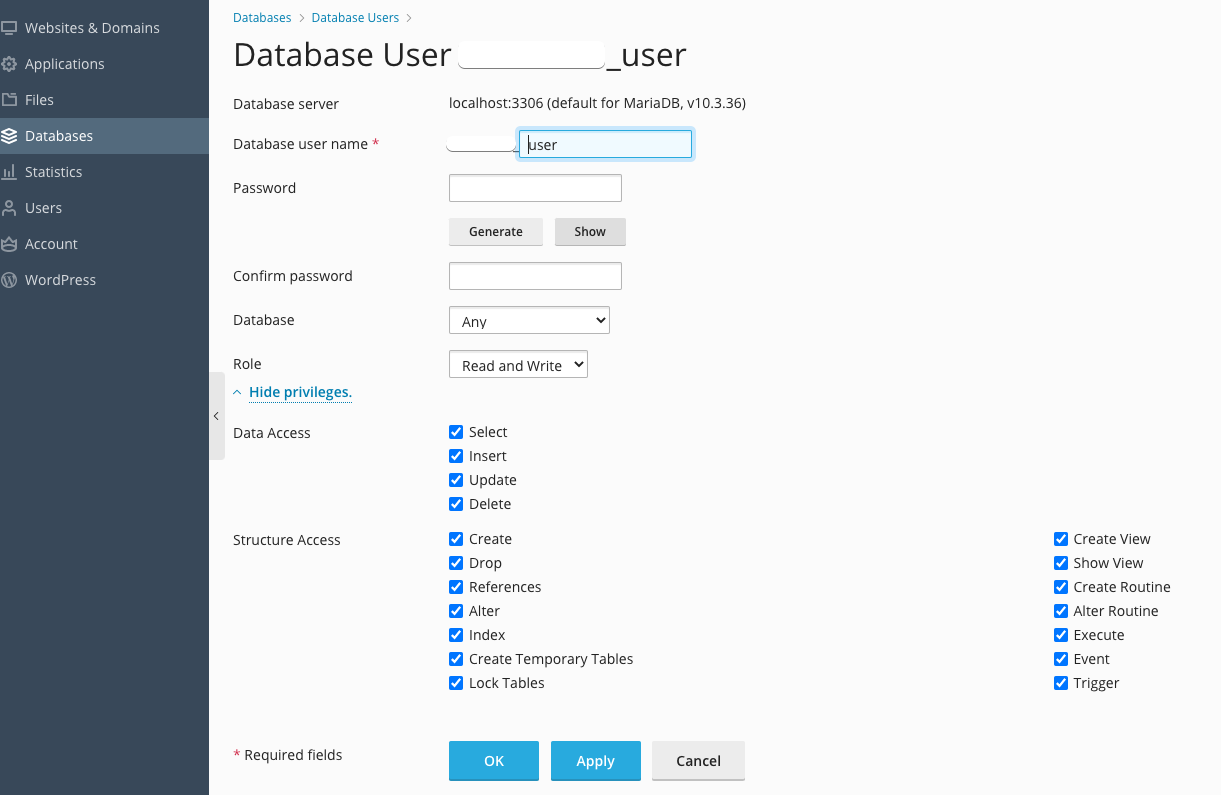
Leaseweb provides a Quick Start Guide that outlines the steps from order placement to delivery, ensuring a straightforward setup process. However, their admin panel lacks the advanced automated features seen in SiteGround. The ease of use is more traditional and may not be as intuitive for non-technical users. While Leaseweb offers a general customer portal for account management and service oversight, it requires more manual intervention, which might be a drawback for beginners compared to SiteGround’s seamless user experience.
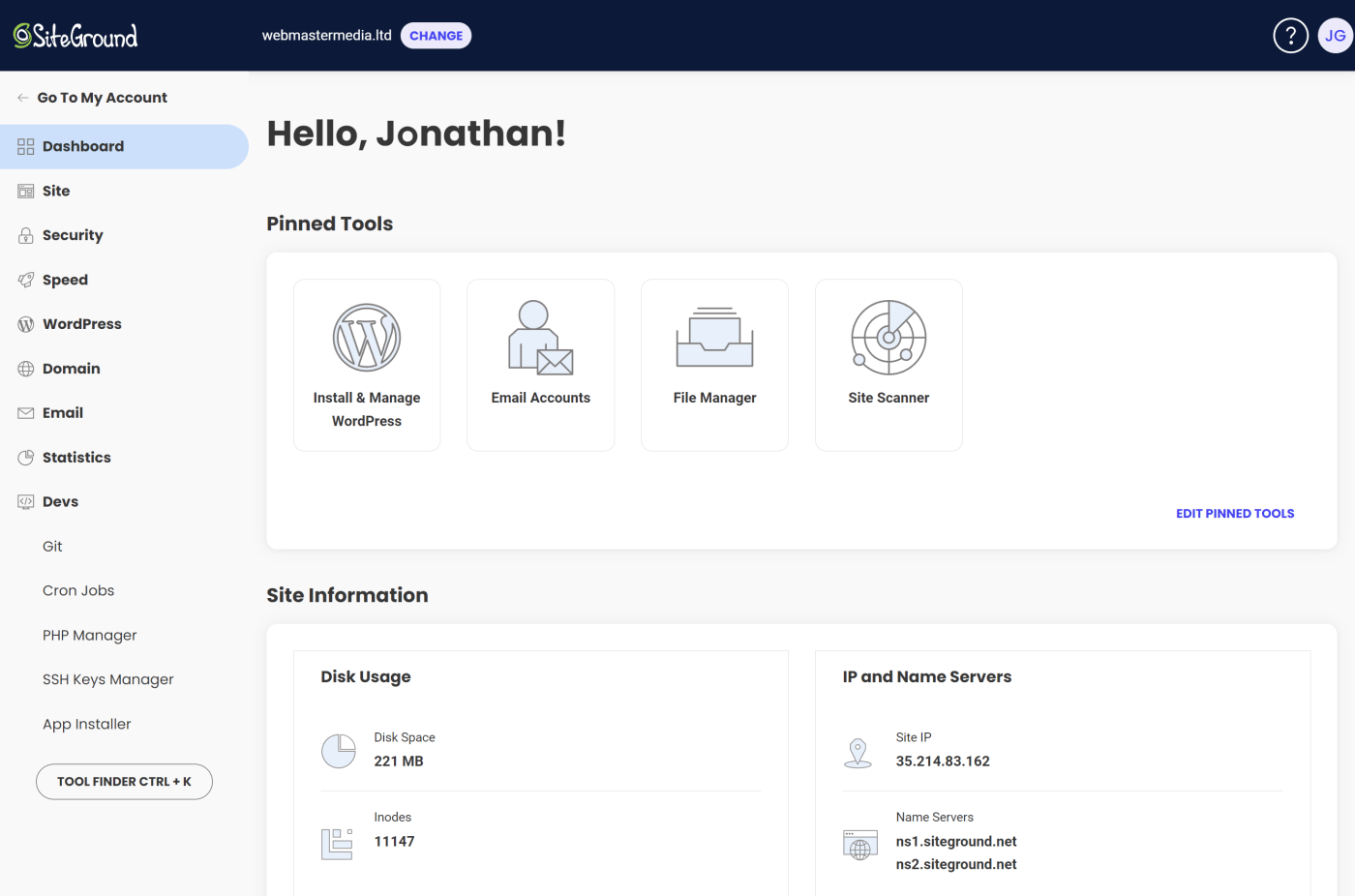
Migration tools vary significantly between these two hosting providers. SiteGround provides a Free WordPress Migrator Plugin, which makes migrating WordPress sites straightforward and free of charge. They also offer professional expert migrations at an affordable fee of $30. Leaseweb does not specify free automated migration tools and focuses more on manual setups and customer support during the onboarding process. This makes SiteGround a more appealing option for those looking for hassle-free site migrations.
SiteGround’s help center is comprehensive, with an extensive knowledge base featuring how-to guides, troubleshooting instructions, and 24/7 live assistance through chat, phone, and helpdesk tickets. Their pinned help on each page and automated solutions further enhance user experience by providing instant answers. Leaseweb has a detailed help center covering various products and services, but it is more segmented and may require users to navigate through multiple sections for answers. Their support includes live chat and email, but the structured knowledge might be less immediately accessible for users needing quick responses.
User management
accessibility.
Score Components:
- Role customization (40%): Flexibility in creating and defining user roles and
permissions. - Ease of management (30%): User interface and tools for managing users.
- Access control (20%): Effectiveness of access control measures for different user
levels. - Scalability (10%): Ability to manage a growing number of users efficiently.
 8.4
8.4
 7.0
7.0
🏆 Winner SiteGround: Providing extensive user management features and white-label options.
When comparing the user management capabilities of SiteGround and Leaseweb, several distinctions become apparent. SiteGround enables users to add team members as collaborators who can build or maintain the site and contact support. It also offers white-label client access on GoGeek and Cloud plans, allowing clients to manage their sites through Site Tools without seeing the SiteGround brand. SiteGround provides granular control in creating and managing custom roles, which can be assigned to specific users. Conversely, Leaseweb’s user management features are not explicitly detailed, though the availability of control panels like Plesk, cPanel, and Vesta implies similar functionalities. For specific roles and permissions, users would likely need to consult Leaseweb’s documentation or support.
SiteGround offers an intuitive interface for user management via its Client Area, where users can create and manage roles. The process is straightforward: users can navigate to the Manage Users section, create roles from predefined options, and specify tools to which clients will have access. Leaseweb relies on established control panels, which are known for their user-friendly interfaces; however, the specifics on how these platforms are implemented at Leaseweb are less clear. Accessing the Leaseweb Customer Portal and API likely provides additional management tools, aligning control features with SiteGround but with less documentation.
In terms of access control and scaling the management of multiple users, SiteGround excels with its structured role assignment and white-labeling options. These features facilitate a streamlined experience for both collaborators and clients, ensuring easy scaling and secure access. Leaseweb’s control panels likely offer effective user management capabilities but lack the evident granularity and white-label features presented by SiteGround. Managing an expanding user base on SiteGround appears more efficient due to the detailed role and permission settings.
SiteGround user roles table:
| Role | Description | Access highlights |
|---|---|---|
| Collaborator | Team member accessing specific sites for building or maintenance | Access to Site Tools, can build/maintain site, contact support |
| White-label Client | Client with branded access to their site | Access to Site Tools via white-label URLs, no SiteGround branding |
| Custom Client Role | Role with tailored access to selected site tools | Granular permissions to specific tools, managed directly from Client Area |
Customer support
hosting provider.
Score Components:
- Support communication channels (30%): Measures the variety of customer support types
provided (live chat, chatbot, email, phone, etc.) - Availability (20%): Assesses the availability hours for each channel, including 24/7
support options. - Technical support quality (30%): Assesses whether the provider offers comprehensive
technical support, including hardware upgrades (e.g., HDD to SSD), software installations, and web
server configuration changes. - Enterprise support (20%): Checks if there are dedicated or priority support services
for enterprise-level customers.
 9.2
9.2
 9.1
9.1
🏆 Winner SiteGround: Comprehensive round-the-clock support and faster response times.
 |
 |
|
|---|---|---|
Phone support |
||
Live chat support |
||
Chatbot |
||
Email/ticket support |
||
Enterprise support (dedicated agent, priority support) |
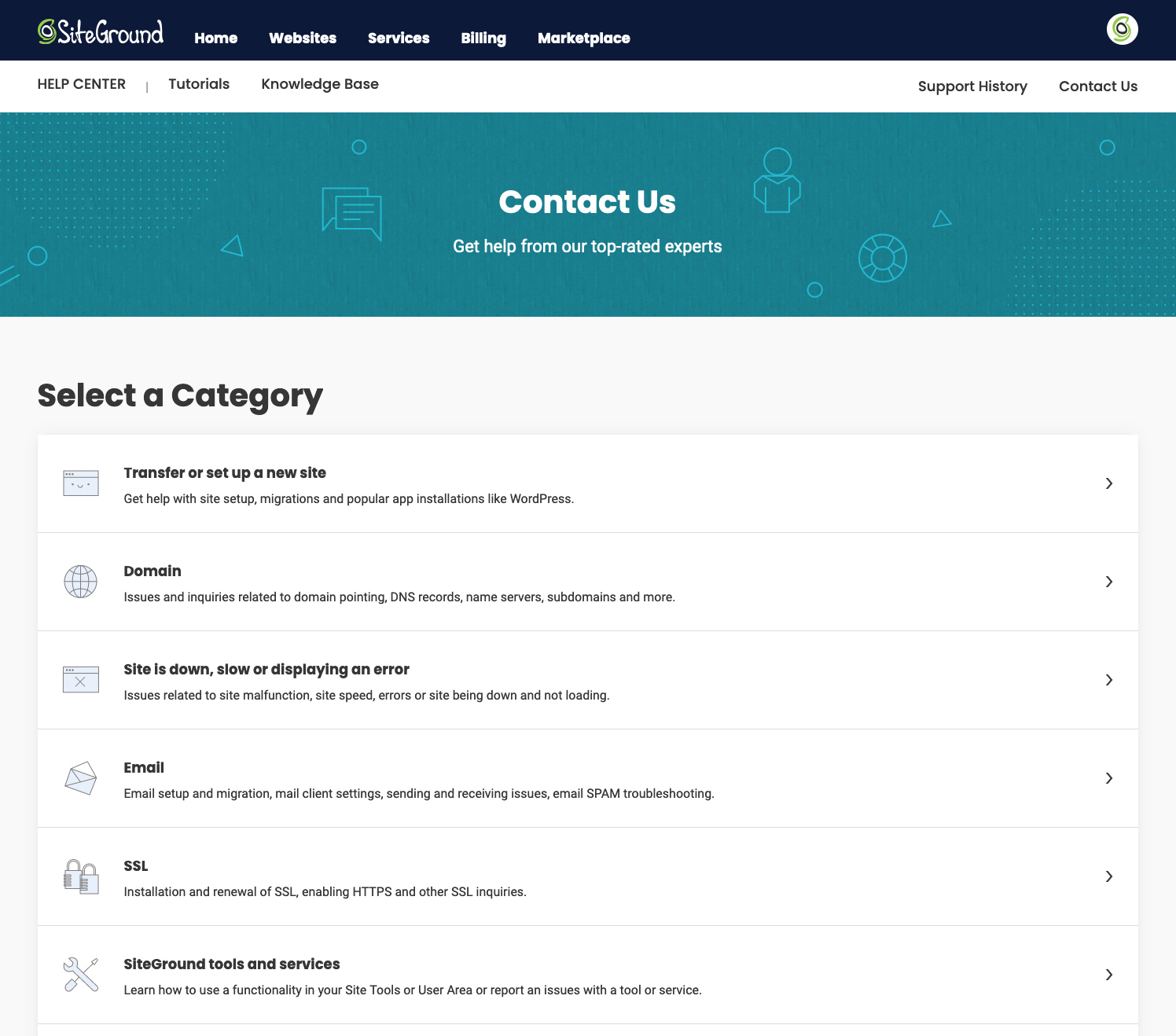
SiteGround and Leaseweb both offer extensive customer support options, including 24/7 availability through various channels like live chat, phone, and email/ticket support. SiteGround stands out with its rapid response times, averaging a 15-minute response for helpdesk tickets and 24/7 live chat service. They also offer an AI assistant and pinned help options for quick resolutions.
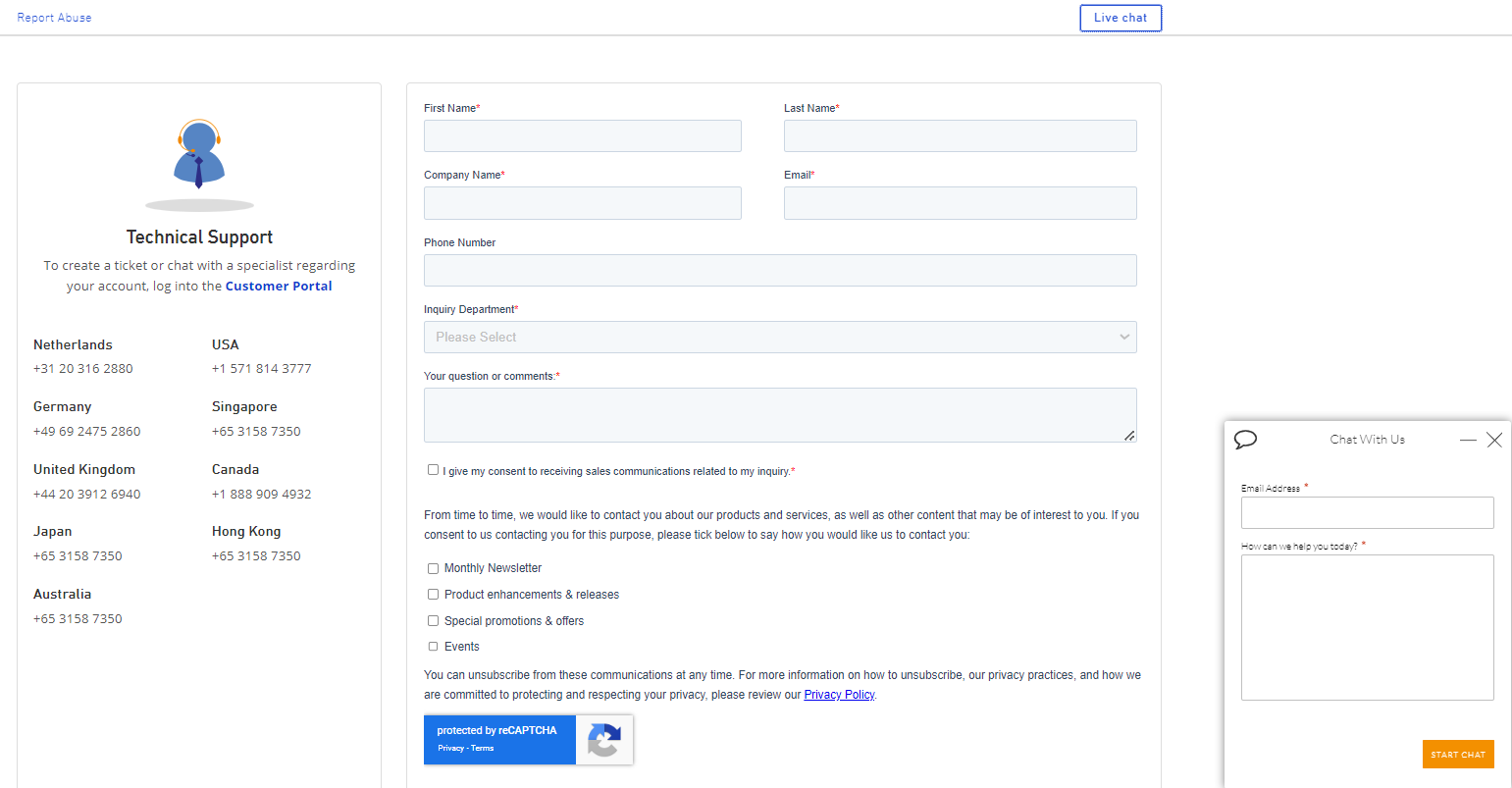
Leaseweb provides varied response times based on their service level agreements, ranging from 30 minutes to 12 hours. Their support portfolio includes remote hands and incident monitoring, which can be beneficial for users with technical needs. However, SiteGround’s superior efficiency and customer satisfaction rate make it the more reliable choice for immediate and knowledgeable support.
User feedback
SiteGround garners consistently high praise for its exceptional customer support and user-friendly tools, frequently being described as reliable and straightforward to use. Users commend the fast and knowledgeable technical assistance, which is available through various channels like chat and phone, often highlighting the effectiveness and patience of support representatives. Despite these positive aspects, some users find renewal pricing relatively expensive and note that navigating to the support section can be cumbersome. Issues with specific features, such as webmail interface and certain plugins, are also mentioned, but overall, SiteGround is recommended for its strong support and ease of use, especially for beginners and small businesses.
The hosting provider excels in offering comprehensive services with impressive billing and contract flexibility, making it easier for businesses to manage their finances. Users appreciate the choice between “Volume” and “Premium” network options, which cater to different performance needs, and find the support and user interface to be intuitive and straightforward. However, customers have raised concerns about high charges for excess traffic, restrictive password policies, inconvenient login procedures, limited payment gateways, and a lack of variety in available system distributions. Overall, while the service is robust and user-friendly, there are areas in need of improvement to enhance the customer experience.
FAQ
Which platform is better suited for hosting WordPress websites?
SiteGround is better suited for hosting WordPress websites with its managed WordPress services, advanced performance optimization, and ease of use. It offers features such as a free site builder, free WordPress migration, and specialized caching plugins. Leaseweb, lacking specific WordPress hosting plans, doesn’t match SiteGround’s tailored offerings for WordPress users.
Are both platforms suitable for beginners?
SiteGround is more suitable for beginners due to its user-friendly management tools, including an automated site setup wizard and a WordPress Starter Plugin. These features simplify the process of setting up and managing websites. Leaseweb, with its more traditional user interface and segmented support, may be less intuitive for users without technical expertise.
Which hosting service offers better security features?
SiteGround offers superior security features, including an AI anti-bot system, a custom Smart Web Application Firewall (WAF), and daily automated backups. Its integration with Google Cloud infrastructure enhances security measures. While Leaseweb provides robust DDoS IP Protection and customizable security profiles, SiteGround’s automated and constantly updated security protocols give it an edge.
Which platform offers better customer support?
SiteGround offers better customer support with 24/7 availability through live chat, phone, and email/ticket support, combined with quick response times and an AI assistant for instant resolutions. Leaseweb’s varied response times and traditional support channels are reliable but not as immediately accessible or efficient as SiteGround’s comprehensive support system.
Which service is more suitable for hosting a high-traffic website?
Leaseweb is more suitable for hosting high-traffic websites due to its high bandwidth capacity, extensive server customization options, and robust VPS and dedicated server offerings. These features cater well to resource-intensive websites. SiteGround, while excellent for small to medium-sized sites, does not provide VPS or dedicated hosting, making it less ideal for very high-traffic sites.
The making of this blog
We followed a clear, step-by-step process to write and research this article.









